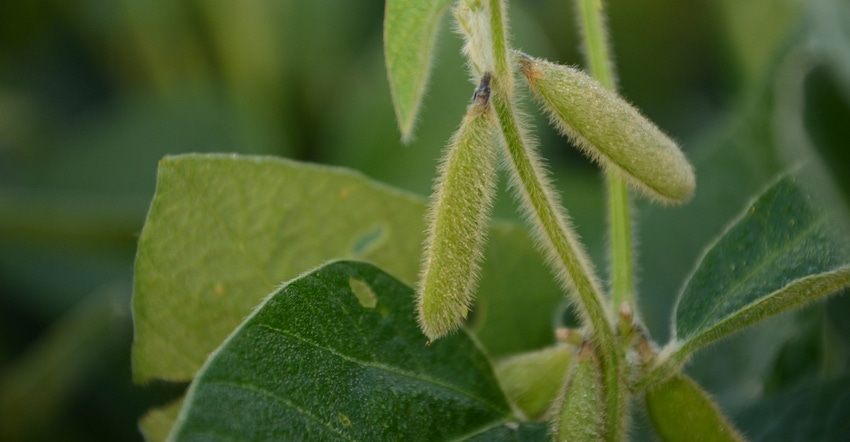June 25, 2020

Mark Douglas remembers what FMC was like when he came to the company in 2010. “Essentially, we had nine separate businesses, and they were in silos with almost no shared services,” he recalls. It’s different today as he takes the reins as the new president and CEO of the company.

THE NEW BOSS: Mark Douglas is the new president and CEO of FMC. He’s been with the company since 2010, and over that time the business has seen tremendous change. (Courtesy of FMC)

“When you have a conglomerate of that size, you can’t get enough critical mass or gain a leadership position in any one business,” he says. “I’m not saying we weren’t successful, but it was clear to us that we had to reshape the company.”
And reshape management did, with an eye toward focus. And the long-term vision for management was to create a company focused on ag and on health and nutrition, which Douglas says was the ultimate strategy.
The work began, and there have been acquisitions like Cheminova, a Denmark-based operation, in 2015, which boosted FMC’s presence in Europe. But the big acquisition that helped firm up what is now an ag-focused company was the deal with DuPont in 2017, when FMC acquired a major part of the DuPont agricultural chemical business, including research and development and manufacturing.
That move turned FMC into the No. 5 pure ag crop protection player in the market, working on both synthetic and biological products. The company is No. 1 in insecticides and has a balanced herbicide portfolio, and Douglas notes that a future opportunity is to build up the fungicide portfolio.
Unique product list
Douglas shares that FMC is unique in one aspect: “We work in specialty and row crops, and 19% of our portfolio is in soybeans spread between the United States, Brazil and Argentina. And only 9% of the portfolio is in corn. And 1% of our revenue is in corn in the United States.”
He doesn’t view the smaller portion of the business in corn as a weakness, instead noting that it means the company has broad crop exposure, which “allows us to bring technology to many different growers.”
Building into corn does offer potential, given the FMC insecticide portfolio. The 3RIVE 3D in-furrow application system is expanding with more products for 2020, and Douglas notes this is a platform that holds promise for more technology.
“We see this as a very interesting area that is highly sustainable,” he says. “With this at-plant crop protection platform, the farmer can basically apply all day without stopping, and put insecticides, fungicides and biofungicides with the seeds. It’s gaining traction, and we have additional synthetic and biological products in the pipeline.”
One technology FMC picked up in that 2017 DuPont purchase is PrecisionPac, which is a kind of crop protection vending machine that allows a dealer to provide applicators with custom blends and the exact amount of product needed for a field or field portion.
FMC has a long history of formulation technology. Combine that with the data potential for PrecisionPac, and Douglas sees some new opportunities for the future. “PrecisionPac is a stand-alone unit; it makes the customer herbicide blends, but there’s a lot of opportunity for big data to be able to tie into a more integrated system, and not be a stand-alone,” he says. “There are lots of opportunities to move different types of products through the system.”
Looking ahead
Douglas acknowledges that farmers may not be aware that today, FMC is a pure ag supplier of crop protection products without the “distraction” of other industries. But where is the company headed for the future? He identified two areas of importance.
The first is technology. “Without technology, we would morph into a different player, a generic player,” he says. The technology FMC has for discovery of new chemistry and active ingredients, as well as formulation innovations, can separate the company in the market.
The second may surprise some readers who follow crop protection companies. “Sustainability is the second, but the two go hand in hand, bolted with precision ag,” he says.
With the DuPont ag research and development acquisition, FMC became more involved in the discovery process. The result is a growing pipeline of new active ingredients, including the promise of new modes of action to control weeds, insects and diseases. That’s a few years away.
The crop protection business has a long development cycle. “Our target is to get one new active ingredient into the consumer’s hands every year; and basically in 2021, 2023 and 2024, we start to hit that stride,” he says. “Some say one active ingredient does not sound like a lot, but that product can be formulated into a myriad of formulations. It’s quite a turnover rate.”
One area of promise is biological products — and for FMC, they’re bigger than you may think. Douglas says the portfolio of business has grown to $100 million per year in sales. Still not huge for a nearly $5 billion sales company, but it shows opportunity in areas ranging from plant health to micronutrients to seed treatments.
He notes that biologicals may never completely replace synthetic products, and the company already offers a hybrid synthetic-biological product to the market. “A lot of people say we will replace synthetic products with biologicals,” Douglas says. “The reality is in certain markets, we will. But there is a very sophisticated market for biologicals and synthetics to be together in terms of formulations.”
Bigger challenges
Douglas, who grew up in the north of England, has been in the chemical industry all his career — from Rohm and Haas to Dow to FMC — with international work and postings throughout his tenure. So what keeps him up at night?
“A couple things,” he says. “I think first of all we are an essential business but unfortunately society does not always see our industry as essential to their lives. However, we provide the technologies that control diseases, weeds and insects that impact a farmer’s ability to put food on our tables Societal pressure and the regulatory environment are changing rapidly. We need to ensure the public, and especially consumers, understand the value of good science and the benefits of crop protection for food, feed and fuel.”
The second issue that he ponders is the notion of climate change. “It is a dynamic issue that comes at all of us in different ways. People are understandably passionate about this subject. It involves land use, water use and many other dimensions. While there are no easy answers or quick fixes, we all have a responsibility to find solutions and help the world move towards a low-carbon, climate-resilient economy,” he says.
About the Author(s)
You May Also Like






